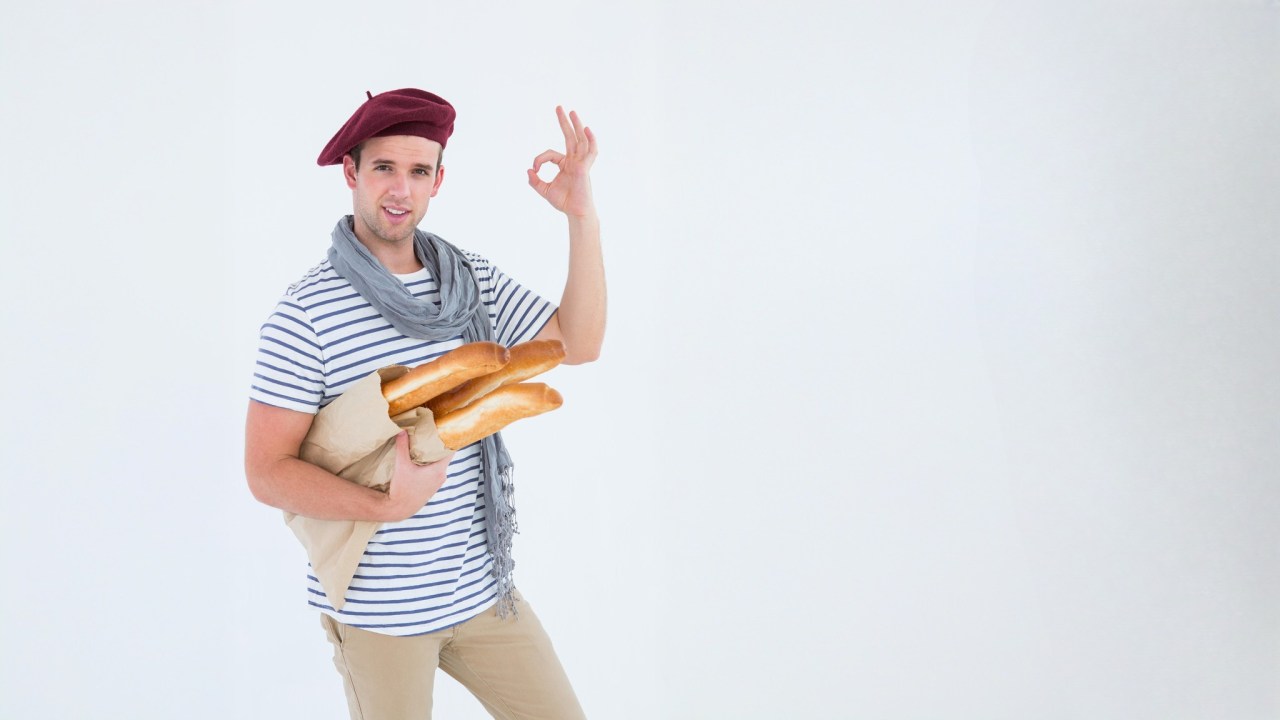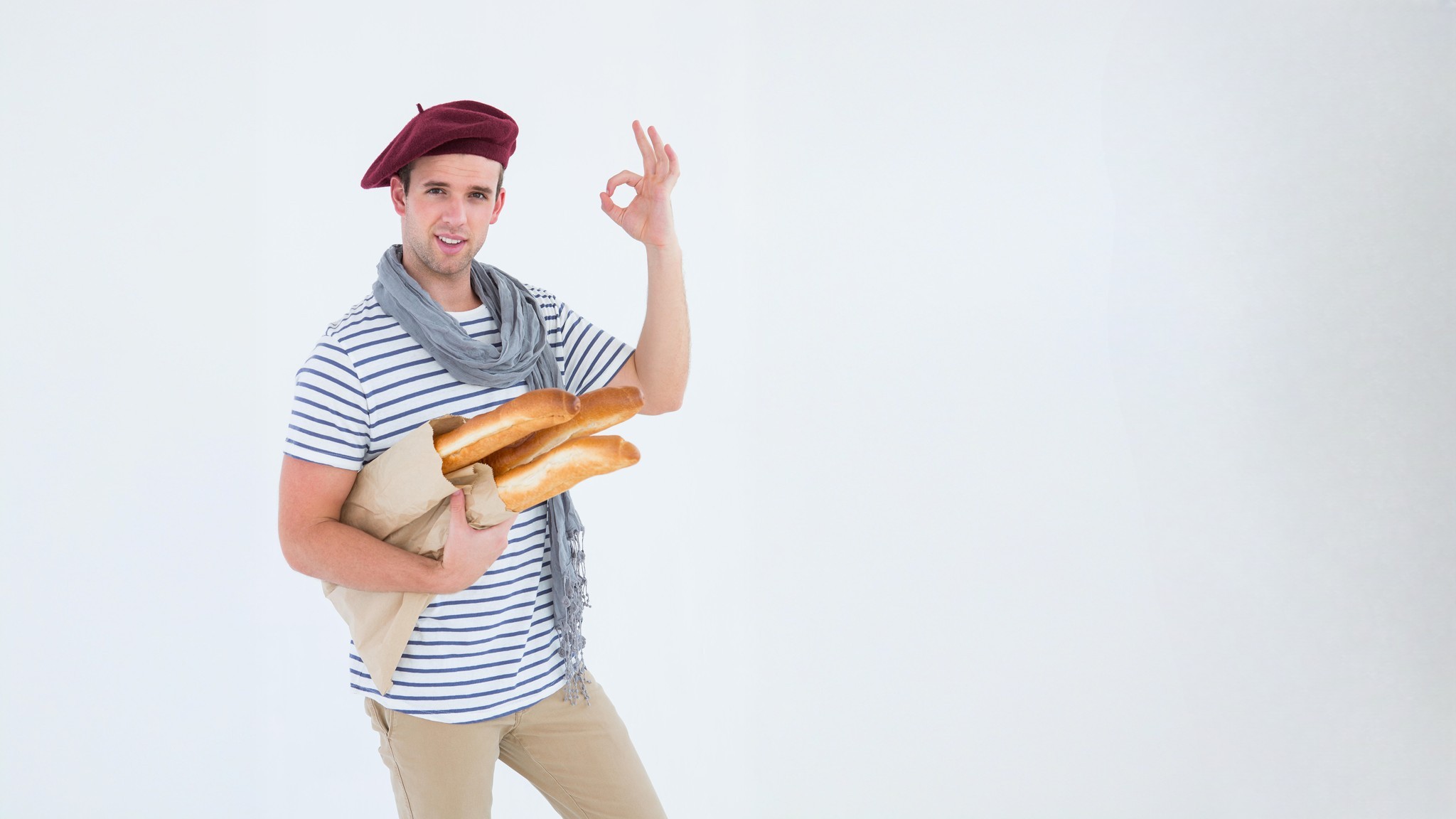Having breakfast at a hotel in the chouette Eighth Arrondisement of Paris last weekend, and employing what I imagine to be my faultless French, I asked for a boiled egg, ‘un oeuf à la coque.’ The waitress asked, did I want glaçons (ice) with that? Err, no, I replied, bemused. The waitress then brought me a bottle of Coca-Cola.
Perhaps this is not a propitious anecdote with which to begin today’s assignment, ‘How I learned to master French.’ Perhaps it casts doubt on my claim to speak French. Or perhaps it was merely a reminder to be humble.
I had a little chat in French with Karine Jean-Pierre, President Biden’s spokeswoman with the wacky hair. We joked about Macron
I am sometimes asked how I have cracked it but the truth is it can’t be done. Once you accept this, you can start speaking French, hoping your charming accent will overcome the grammar of a vache espagnole. I note there are many who claim fluency in another language but seem reluctant to demonstrate this in the field. This is how P.G. Wodehouse explained the phenomenon:
Into the face of the young man who sat on the terrace of the Hotel Magnifique at Cannes there had crept a look of furtive shame, the shifty hangdog look which announces that an Englishman is about to speak French.
Few are chosen to be perfectly polyglot. Some refuse to learn. Others try and fail. Like the Englishman I observed in Pézenas who confidently asked at the papeterie for a plume with his postcard, only to be informed by the baffled salesgirl that they didn’t sell birds. (He was evidently channeling ‘la plume de ma tante’ that he’d learned in prep school. I whispered in his ear that he wanted a stylo – a pen.)
The only people I know who are incontestably bilingual are those who grew up in multilingual homes. There’s a girl in the next village with a British father, an Italian-Swedish mother, who went to primary school in France and college in the UAE, and speaks excellent English, Italian, Swedish and French and imperfect Arabic. A British couple showed up in the village and threw their terrified monoglot children into the local school and two years later they speak French better than me.
I laugh at the adverts for language courses that are supposedly easy and rapid, promising fluency in three months. I admire anyone who can crack a language in three months but doubt there are many. They say that after three or four languages it gets easier. One and a half languages has exhausted me. I’ve tried Spanish and German and can’t get beyond saying hello.
French ought not to be that difficult. There are tens of thousands of cognates. Clemenceau pronounced that English was nothing more than badly pronounced French.
Why learn French? To talk with French people, mainly. And people who speak French, who are a curious and interesting bunch. French is surprisingly widely spoken internationally by cultivated people such as myself, cab drivers and Tintin fans. I’ve used it to talk with Haitians in New York, a guy from Togo in Detroit, and a Kosovan school teacher in a refugee camp in Albania. In Washington recently, outside a Catholic Church in Chevy Chase, I had a little chat in French with Karine Jean-Pierre, President Biden’s spokeswoman with the wacky hair. We joked about Macron. The Haitians speak beautiful French.
The English have a terrible reputation as linguists and here in the sticks of Occitanie, so do the French. They all learn ‘my tailor is rich but my English is poor’ in school (though not much more) and some think it cool to throw in English words into their conversation like ‘yes’ and ‘why not?’ but beyond that, they are generally hopeless. English seems to be taught as poorly in French schools as French is in Britain. (This is not true in Paris. Fluency in English is now obligatory in the capital and even Macron speaks it unapologetically.)
Charles V supposedly spoke Italian to women, French to men, German to his horse, and Spanish to God. But how do you learn another language? I asked bilingual friends. ‘School and wives,’ says a hyper-fluent Brit journalist in Paris who’s a go-to francophone for the news channels. School never did it for me and I’ve been married for 50 years to an anglophone. I have vaguely positive recollections of my elementary school French master who could at least speak French. Not so much of his analogue at Bedales.
‘Boarding school in Shropshire, for two terms, when I was 11,’ says another French friend in Paris, a fanatical anglophone who writes as strongly in English as she does in French. Useful advice, perhaps, if you’re 11. ‘In bed,’ counsels an Italian count who supposedly speaks ten languages, although I am unable to verify his fluency or otherwise. This is not practical advice at my age.
‘If you live here long enough you just start speaking French,’ says Tony, the pool guy. Most of the anglophones who have lived around here for a while, with their post-Brexit titres de séjour, speak passable French just by osmosis. The second-home owners of whom we see less and less because of the 90-day rule are usually rudimentary in their language skills and sadly are not here long enough to improve.
My own counsel is that shame is also good. Or rather, shamelessness. You are going to sound like an idiot when you first venture an opinion at the café and must profit from the humiliation. Shortly after arriving here 20 years ago I confidently strode into the village boulangerie and demanded ‘un baguette.’ ‘Une baguette,’ was the withering reply. I’ve never forgotten the sniggering or that a baguette is feminine.
I attended the local Best Drive auto shop because I had a tire pressure warning. I asked the fierce female patron if one of her lads could check my pneu – pronouncing it ‘pen-oo.’ My deflation was immediate. ‘Pen-euh,’ she said. At the village grocery I learned that un oeuf was, roughly transliterating, an ‘erf’. And multiple oeufs were, er, ‘err’. Un oeuf is enough? It’s the same with boeuf, by the way.
So here’s my lesson. Embrace humiliation. It’s a durable learning experience. Book learning and Duolingo only get you so far. Often very bright people have a hard time learning a second language because they are so eloquent in their mother tongue, they can’t overcome the embarrassment of speaking less than perfectly. Get over it. You will sound like a twat so suck it up.
The other key is to listen. This doesn’t come naturally to a natural broadcaster. Many English people are under the impression that the French pretend not to understand when an anglophone attempts to speak French. I don’t agree. They genuinely don’t understand. The problem isn’t accent. The French actually find it charming when a British person speaks French. The difficulty is pronunciation, which is different. My remedy for this is listening to France Inter, the French equivalent of Radio 4, where they speak beautifully, even if its programming is even more absurdly woke and groupthinky than the BBC.
A Russian once told me that the first ten years in the gulag were the hardest and that’s also true of French. The clever and assiduous can abbreviate this. For some of us it takes longer. Happily, this is probably the best time in history to learn another language. The tools online are extraordinary. Artificial intelligence is moving beyond Babel. Even professional translators use DeepL. I use it to send SMS diatribes to my plumber.
To have another language is to possess a second soul, said Charlemagne, the Holy Roman Emperor, and this I have learned is true. The other lesson is to forget about the past pluperfect subjunctive. A mark of fluency in French is to pivot away from the unlearnable and when you don’t know a word, employ a likely English substitute, pronouncing it like Inspector Clouseau.







Comments